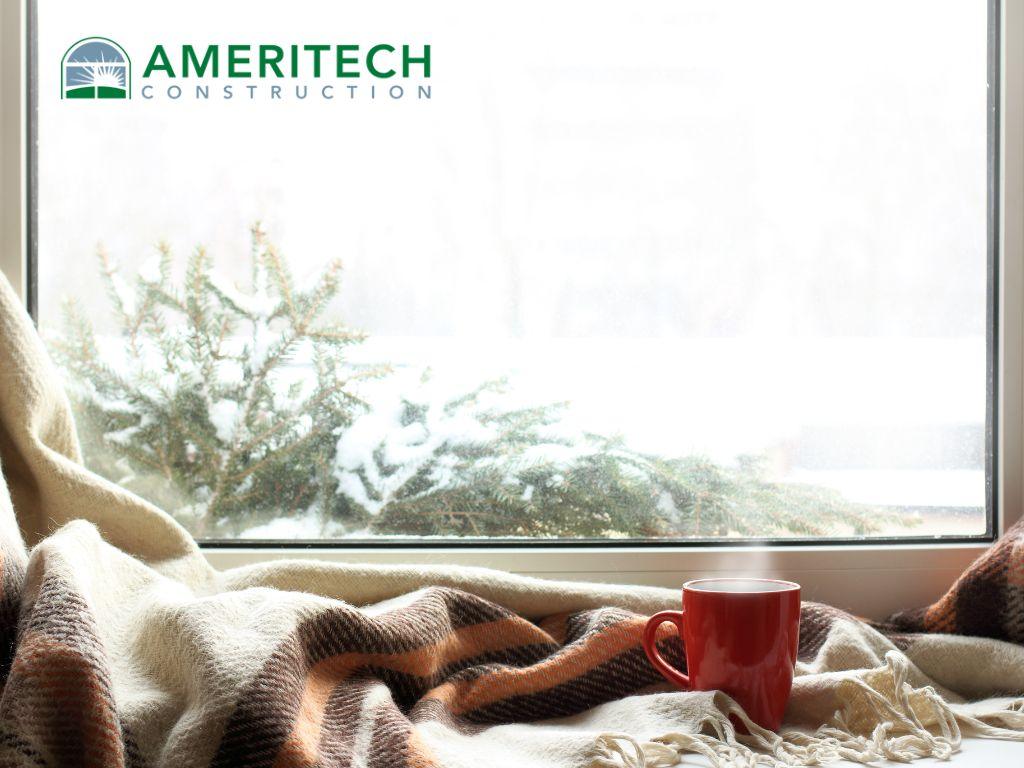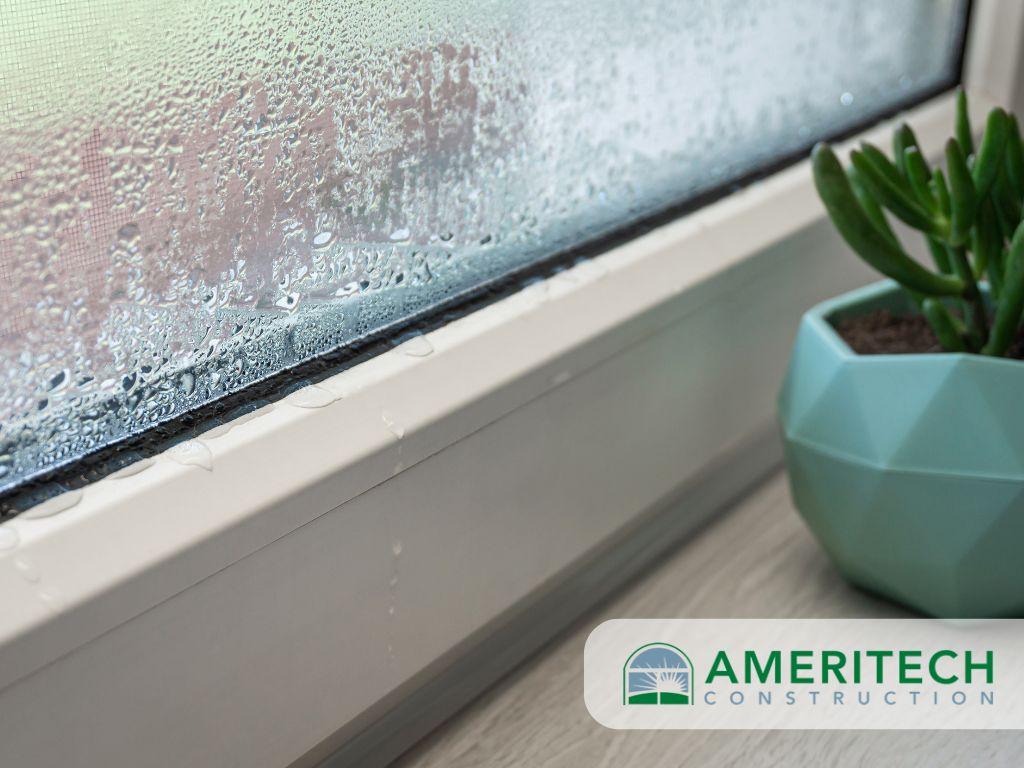How to Choose High-Efficiency Windows for Saving
Choosing the right windows is key to maximizing energy savings and maintaining year-round comfort in your home. High efficiency windows are especially effective in lowering energy bills by minimizing heat loss in winter and heat gain in summer.
To help you make the best choice, here are some valuable tips for selecting windows that ensure maximum savings.
Key Takeaways
- Consider U-Factor and SHGC.
- Select the best frame material.
- Opt for double or triple pane glass.
- Check for Low-E coating.
- Look for ENERGY STAR® certification.
- Consider your climate zone.
- Examine the window’s air leakage rating.
- Pick the right window style.
- Pay attention to window installation.
- Don’t forget about maintenance and durability.
Tip #1: Consider U-Factor and SHGC
The U-Factor measures how well a window prevents heat from escaping. The lower the U-Factor, the more energy-efficient the window is.
The Solar Heat Gain Coefficient (SHGC) indicates how much heat from the sun is blocked, reducing the solar heat gain inside your home.
For optimal energy savings, choose windows with a low U-Factor and SHGC to control both heat transfer and cooling energy, which helps in lowering heating and cooling costs.
Tip #2: Select the Best Frame Material
Choosing the right frame material is essential for energy efficiency. Here are some popular options:
- Vinyl: Provides excellent insulation, is budget-friendly, and requires minimal maintenance. It’s great for maintaining your home’s energy efficiency.
- Wood: Offers natural insulation but needs regular upkeep to prevent warping or rotting. It provides exceptional energy performance.
- Fiberglass: Highly durable, weather-resistant, and offers exceptional energy efficiency, making it a long-lasting option for high-efficiency windows.
- Aluminum: Less energy-efficient but can be improved with thermal breaks to reduce heat transfer and save on energy costs.
For maximum savings and performance, consider combining these materials to achieve both durability and high insulation, ensuring the most energy-efficient windows for your home.
Tip #3: Opt for Double or Triple Pane Glass
Single-pane windows are inefficient and outdated. Modern high-efficiency windows feature double pane or triple pane glass filled with insulating gasses like argon or krypton.
These gasses reduce heat transfer and outside air infiltration, enhancing energy efficiency and keeping your home quieter and more comfortable.
Double pane and triple pane windows are designed to reduce your carbon footprint, providing significant savings on utility bills.
Tip #4: Check for Low-E Coating
Low-E (Low-Emissivity) coatings are microscopic layers applied to window glass that reflect heat. This coating helps maintain indoor temperatures by blocking ultraviolet (UV) rays and reducing infrared heat transfer.
Windows with low-E glass are ideal for homeowners aiming for energy savings without compromising visible light.
Reflecting heat back into your home during colder months can lower heating costs, while in warmer climates, it keeps the heat outside.
Tip #5: Look for ENERGY STAR® Certification
ENERGY STAR® certified windows meet or exceed the energy efficiency guidelines set by the U.S. Environmental Protection Agency (EPA).
These windows offer proven energy performance in reducing energy consumption, which translates to lower utility bills.
The ENERGY STAR® label ensures you’re selecting environmentally responsible options that reduce your carbon footprint.
Tip #6: Consider Your Climate Zone
Your climate zone plays a crucial role in determining the most energy-efficient windows for your home. Windows that perform well in one climate might not be as effective in another, so it’s essential to choose the right type based on your region’s weather patterns.
- Cold climates: Prioritize windows with low U-Factors to reduce heat loss and keep your home warm, enhancing residential heating efficiency.
- Warm climates: Opt for windows with a low SHGC to minimize solar radiation and heat gain, maintaining a cooler indoor environment.
- Mixed climates: Look for windows that strike a balance between U-Factor and SHGC to handle both heat and cold efficiently.
Selecting windows tailored to your climate zone ensures optimal energy savings, comfort, and performance throughout the year, reducing overall heating and cooling costs.
Tip #7: Examine the Window’s Air Leakage Rating
The air leakage rating indicates how much outside air passes through a window. The lower the air leakage, the better the window’s performance in maintaining your indoor temperature.
Efficient windows with an air leakage rating of 0.3 or less help reduce heating and cooling energy loss. This feature is crucial for maintaining energy-efficient windows that save on utility bills, especially in extreme temperatures.
Tip #8: Pick the Right Window Style
The style of your window significantly affects its energy efficiency. Each design offers unique advantages and limitations, so understanding these differences can help you make the best choice for your needs:
- Casement Windows: Offer an airtight seal when closed, providing excellent energy efficiency and minimizing heat loss.
- Awning Windows: Similar to casement windows, they deliver strong insulation and are ideal for preventing air leakage.
- Double-hung Windows: Convenient for ventilation but may have higher air leakage compared to other styles.
- Fixed Windows: Highly efficient due to their airtight nature but don’t open, making them best for areas where ventilation isn’t essential.
Choosing the right window style can significantly enhance your home’s energy efficiency, lowering energy use and reducing overall heating and cooling costs.
Tip #9: Pay Attention to Window Installation
Proper installation is just as important as choosing the right high-efficiency windows. Poorly installed windows can lead to non-solar heat flow and air leakage, significantly affecting energy performance.
Even the best windows can underperform if not installed correctly, leading to higher energy costs. Make sure to hire a professional installer to ensure a tight seal and maximize your energy savings.
Tip #10: Don’t Forget About Maintenance and Durability
Investing in high-efficiency windows is a long-term decision. Opt for windows that are easy to clean and maintain.
Regular maintenance helps preserve the efficiency and longevity of your windows, ensuring maximum savings over time.
Replacing single pane windows with more efficient options is an initial investment that pays off by reducing energy costs and improving your home’s energy efficiency.
Conclusion
High-efficiency windows are a smart investment for homeowners looking to save on energy bills and maintain a comfortable living environment.
By considering factors like U-Factor, SHGC, and frame material, you can make an informed decision that reduces your home’s energy use. Most importantly, proper installation and regular maintenance are key to maximizing the benefits of your high-efficiency windows.
Ready to upgrade to the most energy-efficient windows? Contact Ameritech Construction Corporation today for expert advice and installation. Start your journey toward energy savings and a more comfortable, environmentally responsible home!










